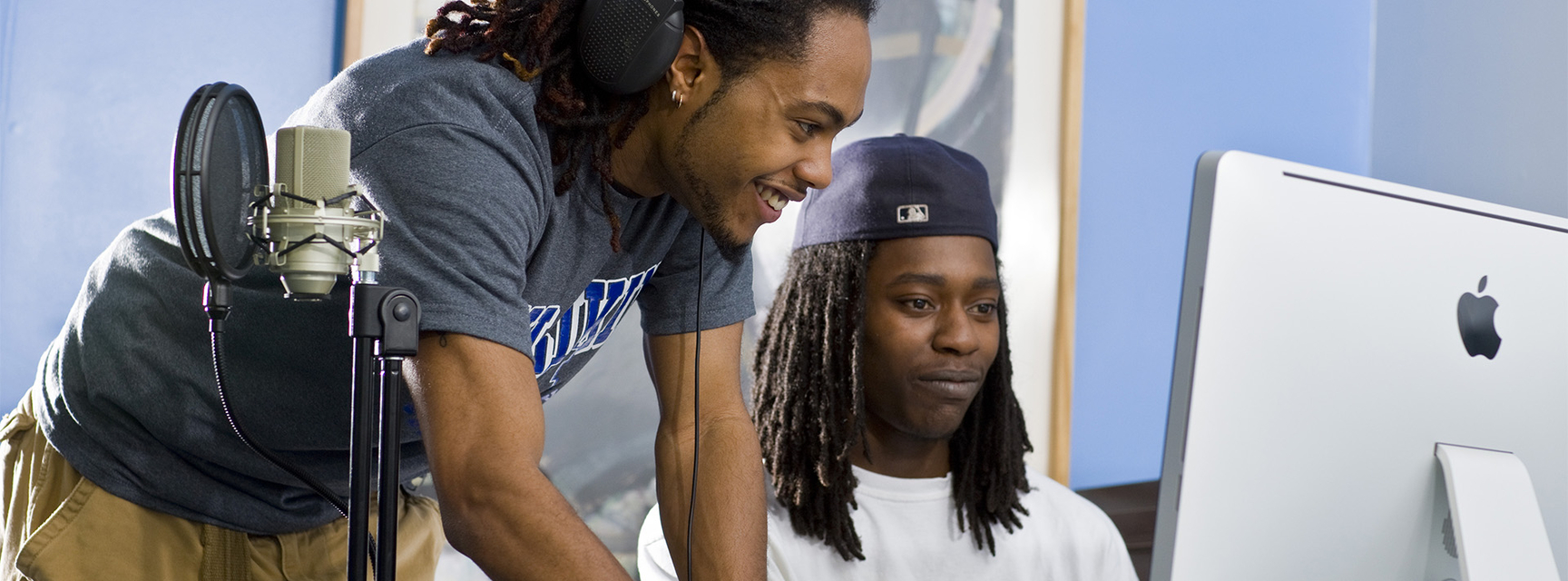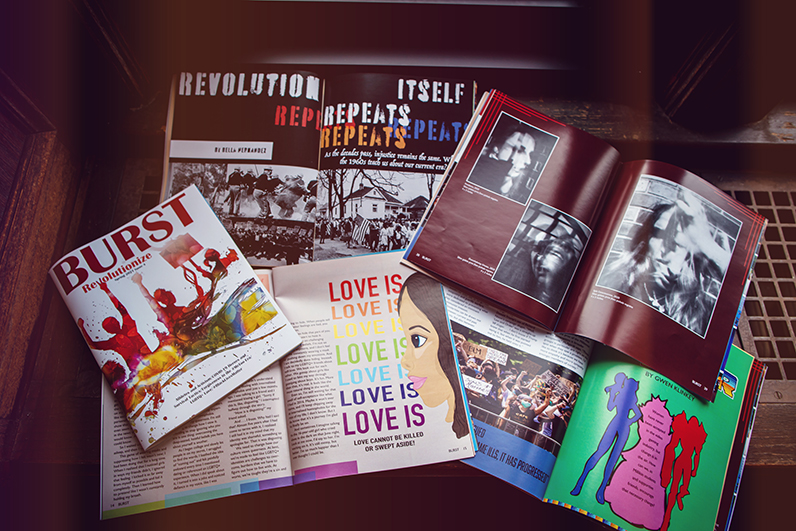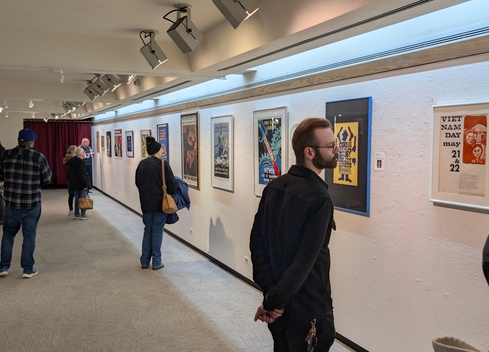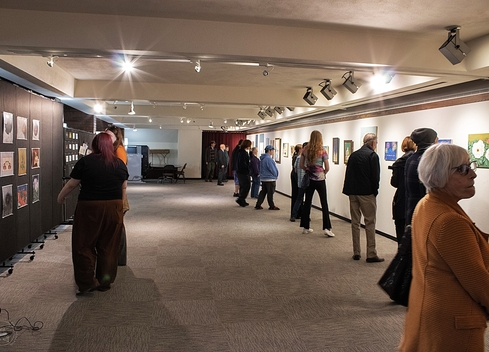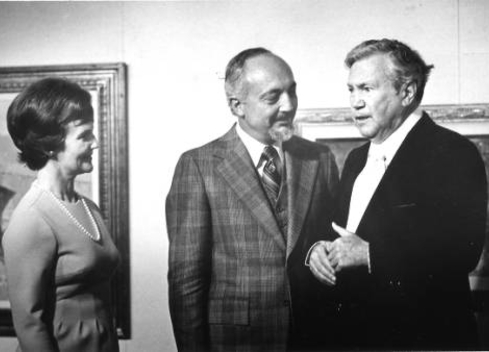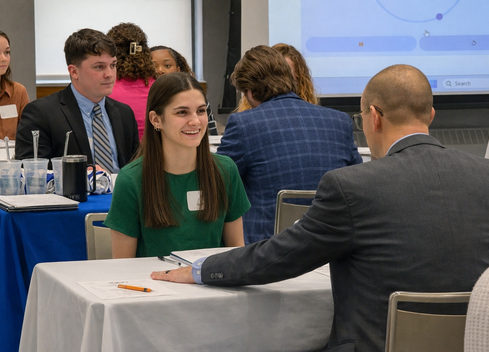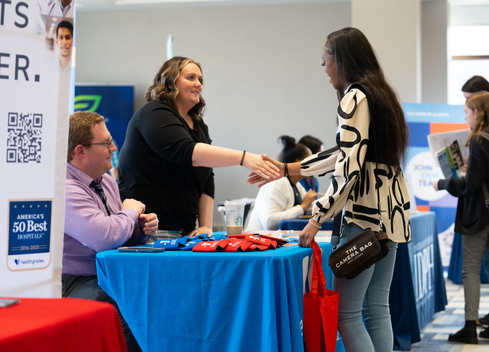Multimedia Communication Major Core Courses (Credits)
AT110 Intro to Digital Media (3)
This course introduces students to professional technology in digital media and experimental artistic techniques. Students will be asked to explore topics such as digital art, graphic design, web design and development through the creation of independent digital media projects, individually, and in groups. Class meetings will include technology workshops, seminar-style discussion of assigned readings, and critiques of student works.
AT157 Storytelling (3)
Through discussion, exercises and projects, students will learn to recognize and utilize the basic elements of compelling stories. They will gain insights necessary to analyze and understand how stories have influenced their own lives. And in turn, they will practice the skills they will need to influence the lives of others by learning how best to create, distribute and tell stories of their own.
AT153 Arts Technology Essentials: Audio (2)
This is an introductory course in digital audio theory, formats and editing, and the fundamental principles and techniques of drafting. The emphasis is on learning to see how audio and drafting are incorporated in live entertainment and to develop a common language in regard to these disciplines. Topics covered include basic understanding of equipment used, careers in the field, a review of basic concepts with regard to composition, analysis, and research.
AT151 Arts Technology Essentials: Lighting, Photo, Video (2)
This is an introductory course to the fundamental principles and techniques of lighting, photography, and video. Students will develop a common language in regard to all three disciplines through the practical implementation of each discipline through individual and larger cooperative projects.
CO101 Intro to Communication Theory (3)
Introduces students to the communication discipline and the systematic study of human communication. Emphasis is placed on providing students with the theoretical grounding necessary for future work in the Department of Communication. In the course of the semester, they will also meet department faculty, learn about their scholarly interests and explore career opportunities.
CO110 Introduction to the Radio Industry (3)
Study of practical and theoretical applications of radio production techniques, including performance, programming, editing, sales and management.
CO225 Media History (3)
Media consumption and interaction are essential elements of citizenship in our ever-increasingly broadcast and streamed global culture. This course is designed as an exploration of the historical effects and role(s) of the mass media, particularly in western culture. The major forms of mass communication i.e. books, periodicals, recorded music, film, radio, television, and the internet will be covered. Special emphasis will be placed on critical analysis of how media messages have impacted individuals and societies, and on theories of communication. Students will move beyond being “consumers” of media to becoming “analysts” of media and its importance in the development of the contemporary culture.
CO308 Communication Ethics & Freedom of Expression (3)
Considers the place of communication in the human situation, critically evaluates theories of ethics, takes up at least one significant problem in applied communication ethics, and makes an examination of some of the famous texts concerning freedom of expression.
EN215 Journalism: Newswriting 1 (3)
Introduction to basic methods of news reporting and writing. Students learn Associated Press style basics and an introduction to journalism ethics while writing the basic types of news stories: obituaries, advances, follow-ups, breaking news, controversy, and research-based. Focuses on print journalism, but also addresses broadcast news writing.
EN305 Web Publishing (3)
This course is an introduction to writing, editing, and publishing web sites for a variety of rhetorical purposes. Students examine the history of publishing technology and the remediation of print media conventions into web publications. Major topics include the integration of visual and verbal elements including writing, graphics, photographs, video, and audio elements into rhetorically effective new hypertext media. As a workshop students learn to use the latest professional web design technologies for campus and off-campus clients.
MK200 Principles of Marketing (3)
Students will use the marketing concept of satisfying customer wants and needs to learn and critique the marketing functions (product, price, place, promotion, people) of local & global businesses.
Any 300/400 level English Writing Course as approved by chair (3)
MM490 Capstone (3)
This culminating course experience will include the creation of a professional website and resume package, a mock interview, lectures and Q&A with guest speakers and other opportunities to prepare Multimedia Communication students to enter the job market. The course will require that students work individually or in small groups to create and publish a professional piece of multimedia communication such as a comic book, podcast, radio play, print or online magazine, or on another digital publishing platform or new media technology.
MM470/471 Internship (1-2)
This culminating paraprofessional experience will provide Multimedia Communication students with the opportunity for Performance Learning through cooperation with an external company, organization, or individual. Students will collaborate with the third party and a faculty supervisor to develop professional and academic learning goals specific to the work of the external partner, and practice multimedia skills under the supervision of industry professionals.
EN280 Journalism Laboratory (1)
Staff members of The Decaturian, Millikin’s student newspaper, receive credit for making a regular contribution to the paper for the semester, writing, and performing other weekly duties for each issue. Participants create a portfolio reflecting on their development during the semester. This course can be repeated each semester for up to eight credits.
CO181 WJMU Radio Laboratory (1-3)
Students enroll in this course to earn credit for their work at WJMU.
CO310 Small Group Communication (3)
Designed to provide students with an understanding of theory, research and methods of group interactions. Practical applications stressed through study of roles, conflict and leadership.
CO332 Gender Communication (3)
The course explores the relationship between communication, gender, and culture in various contexts such as in the media, relationships and organizations. Also, in analyzing these various contexts we investigate how gender is culturally constructed through communication by examining expectations, identities, roles, similarities, and differences.
CO341 Organizational Communication (3)
Examination of the theories of communication within an organization. Topics include formal and informal networks, leadership and management styles, human relations, and corporate culture. Practical application through case studies, simulation and analysis of local companies.
CO343 Communication and Conflict (3)
Introduces students to effective strategies for addressing conflict and mediating disputes. Participants analyze the ways they handle conflict and investigate theoretical approaches to conflict mediation.
CO432 Intercultural Communication (3)
Students will learn the theory and research about communicating with various cultures, races and ethnicities. This course will provide insight into norms, values, beliefs and practices in various cultures. Major goals of this class will be to understand, adapt, and appreciate communication with different cultures, races, ethnicities. Ultimately, the focus and outcome is to improve one’s intercultural communication competence, both verbal and nonverbal in various intercultural situations. While we will cover various cultures, races, ethnicities, students will develop an in-depth project on one particular culture, race, and ethnicity.
CO281 WJMU Radio Laboratory (1-3)
Students enroll in this course to earn credit for their work at WJMU.
CO381 WJMU Radio Laboratory (1-3)
Students enroll in this course to earn credit for their work at WJMU.
EN384 Art of Publishing (1-3)
Art of Publishing is a performance learning practicum in book publishing. Students learn by working as an editor or designer carrying out specific responsibilities for a student-run book publishing company. Possible student positions include editor, production manager, art director, designer, and marketing manager.
AT320 Motion Graphics Animation (3)
Intensive hands-on investigation of the tools, techniques, and processes for the development of digital motion projects. Elements such as type, photography, video, illustrations, and 3D objects will be integrated in time and space to communicate messages or tell a story. Software Focus: Adobe After Effects.
AR201 Computer Art & Design (3)
Designed to apply computer technology to solving visual problems in fine arts and graphic design. Emphasis is on individual expression and acquiring skills to effectively communicate through computer graphics. Students are introduced to fundamentals of computer graphics through lecture, presentation, discussion and hands-on experiences.
MM360 Topics in: Multimedia Communication (3)
This course focuses on major topics in one or several of the following areas in multimedia communication: print and online journalism, audio media analysis and production, live broadcasting, multimedia production, media law & policy, storytelling forums, or other new media technologies.
CO314 Advanced Radio Production and Performance (3)
Copywriting, interviewing, on-air performance, and new studio production techniques are studied and practiced. Students are responsible for several broadcast-ready productions.
AT234 Preproduction for Video and Cinema 1 (3)
Preproduction is the process of planning a video or cinema project. During preproduction a filmmaker is responsible for the creation of an entire piece completely within his or her own mind. Pre-pro is one of the most creative parts of filmmaking as it is the first step in bringing this imagined vision to life, but it is also a time for disciplined organization. This course will detail the elements necessary for effective preproduction. Through discussion, exercises and projects, students will learn to recognize the roles of preproduction staff and how to assemble an effective team. They will gain understanding into how efficient preproduction can be the difference between success and failure in the world of video and cinema. In turn students will practice the skills and disciplines necessary to build the strong foundations they will need for any and all productions they may face in the future.
AT334 Production for Video and Cinema 1 (3) or AT 337 Cinematography (3)
The “shoot” is the heart of any production. Production is the process of recording the raw elements for a video or cinema project. Production is a high-stress environment where time is money, but with the right team and proper preproduction elements in place production can be a dynamic time full of creative collaboration where the ideas from preproduction truly begin to come to life. This course will explore the elements, equipment and disciplines necessary for video and cinema production. Through discussion, exercises and projects, students will learn to recognize the roles of production staff and how to assemble an effective team. They will gain understanding into how each role on a production team contributes to the overall project. Students will, through projects and practice, build the skills and knowledge they will need for any and all production challenges they may face in the future.
AT390 1901 Productions (1)
AT321 Millikin Creates (1)
Millikin Creates is a student run digital media firm that creates visual, interactive, or audio solutions for clients on campus or in the community. This student venture also creates custom content surrounding innovation, creativity, and technology and publishes on a variety of digital platforms. Students interested in arts technology, project management, entrepreneurship, and/or digital journalism are encouraged to enroll.
MK330 Event Planning & Marketing (3)
The Event Planning course will provide students with the foundation to successfully plan an event such as a profit or non-profit board meeting, major fund raising initiative for an organization, or major corporate event. The course will allow students a “behind the scenes” perspective of how to organize and execute a successful event from the initial planning stage, budget preparation, marketing, and to the end product and the ability to assess the success of the event. Students will garner an understanding of how to market an event utilizing various PR tools coupled with good financial management.
ES344 Sports & Recreation Event Planning & Marketing (3)
This course offers experience in the researching, planning, coordinating, marketing, management, and evaluation of events within the fields of sport and recreation management.
MK307 IMC Campaigns (3)
An applied study of fundamentals of promotions management and marketing communications. Uses tools such as promotional plans, advertising budgets, media purchasing, advertising goals and objectives to develop an understanding of promotion and advertising. Applications orientation provides ample opportunity for students to make decisions relating to advertising and promotion strategies.
CO470 Persuasion Campaigns and Performance (3)
You will plan, design, and implement a pro-social persuasion campaign for the Millikin campus or Decatur community. For example, you might produce a campaign to discourage social smoking or promote exercise. This class will blend theories of persuasion with plenty of time to work on the practicals. By the end of the course, you will have portfolio material useful for applying to jobs in advertising, marketing, sales, PR, creative arts, and other fields.
CO251 Intro to Public Relations (3)
Covers basic public relations principles and tools such as research, planning, media relations, press releases, public service announcements, brochures, newsletters, layout and printing techniques, position papers, and special events.
